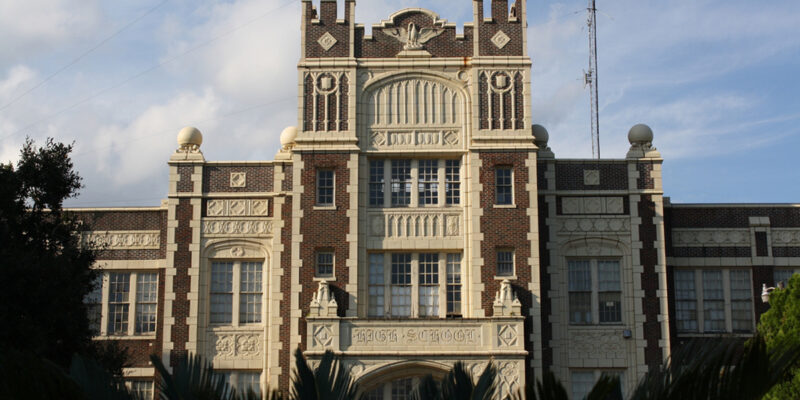While Florida Governor Ron DeSantis is setting a best-practices conservative example for handling education in a red state, Louisiana continues to lag behind in allowing harmful curricula.
DeSantis made waves in January when he declared that he would be banning the College Board’s new curriculum for AP African American Studies course due to its promotion of elements such as Critical Race Theory (CRT), which violates a Florida law passed in 2021.
But in Louisiana, the College Board course will be taught at, among other places, Baton Rouge Magnet High School (BRMH), ranked by US News as the #5 high school in the state and the best in the Baton Rouge area.
Responding to objections from conservatives nationwide, DeSantis banned the course, which led to the College Board removing many ideologically driven elements from the curriculum such as critical race authors and the promotion of Black Lives Matter. Compromises were also made, which included a “black conservatism” research topic for students. However, these elements only affect the formal curriculum.
History has shown that the normalization of ideologies such as CRT come when these ideas are gradually introduced to important areas of culture such as education. CRT began its rise to cultural prominence as early as the 1990s when it was slowly introduced into higher education courtesy of a number of leftist academics, perhaps most prominently among them Harvard law professor Derrick Bell – a mentor of future president Barack Obama – built a large body of writings around the concept that racism is permanent in America and that the country was built on slavery and injustice. CRT has gradually expanded to countless universities across the U.S. and is now commonplace in popular culture.
While the College Board has removed many of the more controversial elements from the African American Studies curriculum, there are educators who still look forward to teaching American history through a similar perspective. Close to home, BRMHS teacher Emmitt Glynn III has expressed excitement in this regard.
“Students are going to learn about the African Diaspora,” said Glynn in an interview with WBRZ-TV. They are going to learn about the history of this country in general, through the lens of the African American experience.”
Regardless of any modifications to the formal curriculum which would seem to make the class “safer”, it is clear that educators still see the class as an opportunity to introduce students to similar ideas, which would signal a challenge for conservatives trying to enforce a ban on CRT in schools. The old adage that “personnel is policy” would seem to apply.
Advertisement
For example, Glynn, the Baton Rouge Magnet High teacher, is fully on board with CRT.
“Slavery, even though it’s not mentioned in the Constitution, it’s a driving force for how the Constitution is shaped,” he said. “Many students don’t hear that or they don’t get those things in just a general setting.”
Statements such as these are in-line with CRT works such as the 1619 Project, which states that the core of the United States is founded within slavery.
Regardless of whether controversial elements are found within the formal curriculum of the College Board’s African American Studies class, more radical ideas appear well on their way into Louisiana classrooms. While these ideas have already taken hold of universities including Louisiana’s flagship Louisiana State University, CRT looks to become normalized within K-12 education soon, at least if one of the state’s traditional best high schools is any barometer.
Advertisement
Advertisement

